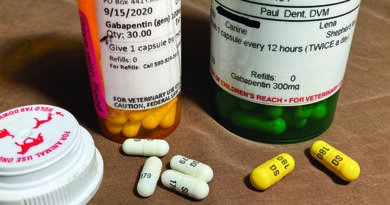Tips to Prevent Whooping Cough (Pertussis)
It’s difficult to imagine a more contagious disease than whooping cough.
For adolescents and adults, whooping cough, or pertussis, is a huge bother: cold symptoms, followed by a cough that takes weeks or months to resolve. Missed work and school are common. But for infants who haven’t yet been immunized, whooping cough can be serious — even life threatening.
“Pertussis has caused about 30 deaths a year in the U.S. recently, almost all of them in children younger than three months old,” says Harry Keyserling, MD, professor of pediatric infectious disease at Emory University in Atlanta and a spokesman for the American Academy of Pediatrics. “Children this young usually have severe illness requiring hospitalization and are at high risk for complications like pneumonia and seizures.”
Preventing whooping cough starts by recognizing how young children usually catch the bacteria: from other family members. “In most cases, it’s a parent or sibling that passes pertussis to a child,” says Keyserling.
Bordetella pertussis is a bacterium that can live in the human respiratory tract. The bacteria is easily spread through sneezes and coughs, often from people who often don’t even know they have the infection.
From 80% to 90% of Americans have been immunized against pertussis. But the pertussis vaccine, like natural pertussis infection, does not provide lifelong protection. Immunity to pertussis wanes five to 10 years after the last childhood vaccine, leaving adolescents and adults susceptible to infection. People who have had pertussis lose their immunity, too.
Pertussis infects at least 600,000 people – and perhaps more than a million people each year in the U.S. The exact number is impossible to determine because whooping cough is rarely recognized in previously immunized people.
Thanks to partial immunity from early vaccination, “their symptoms are mild, like a cold with a cough,” says Keyserling. “Most probably never need or seek medical attention.” And, most have no idea their symptoms are actually whooping cough.
Even so, they can and do pass the pertussis bacteria to other people. Older children and adults aren’t at serious risk from infection — although “mild” whooping cough symptoms still can mean a cough that lasts for more than a month, usually causing lost sleep and missed school or work days.
The real threat, however, comes from spreading pertussis to a very young, incompletely vaccinated child.
The pertussis vaccine, called DTaP (for diphtheria, tetanus, and pertussis), is typically given in five doses. The first four shots are given during a baby’s first year and a half of life: at 2, 4, 6, and 15 to 18 months. A final dose is given between 4 and 6 years of age.
After the third dose, children are well protected: They have about 80% to 85% immunity to pertussis. If they do catch whooping cough despite the vaccine, the infection is usually mild.
But during their first six months — and particularly the first two months of life before babies have been vaccinated — babies are especially vulnerable to serious whooping cough infections, Keyserling tells WebMD.
For this reason, for infants with pertussis who are less than two months old, severe illness is the norm. “Ninety percent require hospitalization, one in five will develop a pneumonia, and one percent will die” from whooping cough, warns Keyserling.
Deaths from whooping cough are very rare in the U.S. But of the 156 deaths reported to the CDC between 2000 and 2006, 120 (77%) were newborns less than 1 month old.
“Preventing transmission to all young children, but especially to infants, is the major public health issue,” says Tami Skoff, MS, an epidemiologist at the CDC National Center for Immunization and Respiratory Diseases.
The first and most important rule of pertussis prevention isn’t complicated, says Skoff: “Vaccinate, vaccinate, vaccinate.” Vaccination is the single best way to prevent whooping cough.
Simply showing up for regular pediatrician visits, where your baby will be vaccinated on a regular schedule, will ensure early immunity for your child. “You’re also helping protect other children” through so-called “herd immunity,” adds Skoff: The more children who are vaccinated overall, the less pertussis can spread among them.
Most parents already realize the importance of early vaccination for pertussis and other childhood diseases. But because the vaccine’s protection doesn’t really take hold until the third injection, after a child is 6 months old, it’s important to stop the spread of whooping cough between family members before then.
The CDC now recommends a pertussis booster vaccine for everyone between ages 11 and 64.Pregnant women are also encouraged to get vaccinated, preferably between 27 and 36 weeks’ gestation. Called Tdap, the booster shot is given once and provides approximately 90% renewed immunity against whooping cough. It’s not clear how long the protection lasts, but it appears to be at least five years.
The Tdap booster shot also renews immunity against diphtheria and tetanus. “For most people, it’s basically a booster for the original DTaP vaccine they’ve already received,” says Skoff.
The Tdap vaccine can be given at any time, although it is often spaced out if other vaccines and boosters have been given recently. In families with newborn babies in the house, everyone older than 11 years of age should most likely receive Tdap, experts say.
Experts are optimistic that widespread use of Tdap will drive serious cases of pertussis even lower. “We’re certainly hopeful that as we see higher uptake of the vaccine among adolescents, we’ll see a decrease in pertussis among vulnerable infants,” Keyserling tells WebMD.
Whooping cough is treatable with antibiotics such as erythromycin, clarithromycin, doxycycline, azithromycin, and trimethoprim/sulfamethoxazole. Anyone who is diagnosed during the first few weeks of cough should take antibiotics to reduce spread of the disease to others. Antibiotics, however, may not reduce the symptoms very much.
Because pertussis is so contagious, other household members should also take antibiotics to prevent whooping cough from developing and spreading. “Depending on the situation, close contacts at school or daycare may also need to take antibiotics,” says Keyserling.
If your child has been exposed to someone with known pertussis at school or daycare, close observation and a discussion with your doctor may be in order to see if they should take antibiotics.
Other than vaccination and booster immunization with Tdap, there’s no effective way to prevent pertussis. The bacteria is simply too contagious, and the symptoms too similar to those of the common cold, to realistically stop its spread.
Still, there are two things you can do to reduce the symptoms and spread of whooping cough, should this bacteria sneak into your family circle:
- Wash your hands. Hand hygiene is a universal recommendation. When possible, wash hands or use alcohol-based rubs after touching nasal secretions.
- Cover your nose and mouth when coughing or sneezing. Encourage children to do the same.
As Keyserling points out, however, trying to prevent the spread of whooping cough without adequate vaccination is most likely a losing battle. “People are social beings, and intimacy at home is natural,” he says. “No one washes their hands before hugging their child.”



